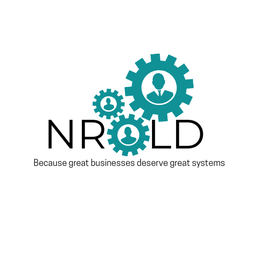4 Paths for Monetizing Coding Skills
While a traditional full-time job is a great path, it is not the only way to make money with your programming skills. You can start a side hustle, build your own products, or become an expert who teaches others.

This guide will break down four proven, step-by-step paths to turn your code into cash, whether you are a beginner or a seasoned developer.
Step 1: Build Your Foundation: A Strong Portfolio and a Niche
Before you can make money, you need to prove you have the skills. A resume is a list of claims; a portfolio is proof. Your portfolio is your storefront, showcasing your best work to potential clients or customers.
1. Create a Portfolio of Real Projects.
You don’t need client projects to start. Build your own. This shows initiative and passion.
- A personal website: Build your own portfolio site from scratch. This is a project in itself.
- A clone of a popular app: Rebuild a simple version of an app like Twitter or Instagram to showcase your skills with a specific framework.
- A tool that solves your own problem: Did you create a script to organize your files? Or a simple app to track your workouts? This shows you can identify a problem and use code to solve it.
Host your code on GitHub. This is non-negotiable. Every potential client or employer will want to see your code.
2. Choose a Niche to Become a Specialist.
The world has millions of "web developers." It has far fewer "Shopify app developers for sustainable fashion brands." A niche helps you stand out, command higher prices, and attract your ideal clients.
How to find your niche:
- By Technology: Become an expert in a specific stack like React, Python/Django, or Swift for iOS.
- By Industry: Focus on a particular field like fintech, healthcare, or e-commerce. You will learn the industry's specific problems and become a more valuable partner.
Example:
Instead of being a "general web developer," you decide to become a "WordPress developer specializing in creating fast, secure websites for local law firms." Your portfolio now features three fictional law firm websites you built. This makes it an easy choice for a law firm looking to hire a developer.
Step 2: The Direct Path: Freelancing and Consulting
This is the most straightforward way to start making money. You provide your coding services directly to a client in exchange for an hourly rate or a fixed project fee. It provides active income and helps you build your portfolio with real-world experience.
What services can you offer?
- Building websites for small businesses.
- Developing custom features for an existing app.
- Fixing bugs or speeding up a slow website.
- Automating business tasks with scripts.
How to find your first freelance clients:
- Freelance Marketplaces: Sites like Upwork, Toptal, and Fiverr are full of clients looking for developers. They are competitive, but great for getting your first few projects.
- Your Network: Let friends, family, and former colleagues know that you are available for freelance work. Your first client is often someone you already know.
- Direct Outreach on LinkedIn: Find companies in your niche on LinkedIn. Connect with their decision-makers (like a Head of Marketing or CEO) and send a short, helpful message.
Actionable Example: A Winning Upwork Proposal
- The Job Post: "Looking for a developer to speed up my slow WordPress website for my online bakery."
- A Weak Proposal: "Hello, I am a WordPress expert and I can speed up your site. I have 5 years of experience."
- A Strong Proposal: "Hi [Client's Name], I saw your post about your slow bakery website. A slow site can hurt sales, especially on mobile. I specialize in optimizing WordPress sites for e-commerce. I recently helped another online store cut their load time in half, which increased their mobile conversions. I can run a free performance audit on your site and show you the three biggest areas for improvement. Would you be open to that?"
This strong proposal shows empathy, expertise, and provides value upfront.
Step 3: Build to Sell: The Path to Passive Income with Products
This is the dream for many developers: build something once and get paid for it over and over. This path requires more upfront work but offers incredible scalability.
What kind of products can you build?
- Micro-SaaS (Software as a Service): Create a simple software tool that solves a very specific problem for a niche audience and charge a monthly subscription.
- Example: A simple web app that sends a daily email digest of new government contracts to small consulting firms.
- Plugins or Add-ons: The market for WordPress plugins, Shopify apps, or even VS Code extensions is huge.
- Example: A WordPress plugin that automatically adds a "Buy on Amazon" button to book review blog posts.
- Themes and Templates: Design and code premium website themes or app templates.
- Where to sell: Marketplaces like ThemeForest and CodeCanyon are popular.
How to get started:
Start by solving a problem you understand. "Scratch your own itch." The best products often come from a developer building a tool for themselves, and then realizing others have the same problem.
Step 4: Monetize Your Expertise Through Content and Teaching
Your knowledge is a valuable asset. Once you have some experience, you can make money by teaching other people how to code. This builds your personal brand and creates another income stream.
1. Start by Building an Audience with Free Content.
You need to establish credibility and trust.
- Start a Blog: Write tutorials and articles about what you are learning.
- Create a YouTube Channel: Make video tutorials. Coding tutorials are one of the most popular categories on YouTube.
- Be Active on Twitter or LinkedIn: Share tips, insights, and your coding journey.
2. Create and Sell Premium Educational Products.
Once you have an audience that trusts you, you can offer them paid products.
- Online Courses: Create a comprehensive course on a specific topic. You can use platforms like Udemy, Teachable, or host it yourself.
- Example: A course titled "The Complete Guide to Building Your First E-commerce Site with Shopify."
- E-books: Write and sell an e-book on a niche topic, like "Data Structures for a Job Interview" or "Mastering CSS Flexbox."
- Paid Mentorship: Offer one-on-one coaching sessions to help junior developers with their code or their career.
Action builds business. Start small, start smart—then scale.

This content is AI-assisted and reviewed for accuracy, but errors may occur. Always consult a legal/financial professional before making business decisions. nrold.com is not liable for any actions taken based on this information.


